For Kira Oves-Shupik, a correspondent for the national Ukrainian TV channel 1+1 in Zaporizhzhia, filming the aftermath of Russian shelling has unfortunately become a common occurrence. But this time, the filming was divided into “before” and “after.” Having been wounded in the line of duty, Kira later realized that the alarms and possible hits in her hometown of Zaporizhzhia now scare her much more. However, she has no intention of stopping her work. She tames her fears thanks to sports, the support of her loved ones, and her natural optimism.
One of the most memorable days in my life, perhaps forever, was April 5th this year. On that day, Russians resorted to terror against civilians using double, massive strikes. It was a day when they targeted our city twice—first in the morning, and then, about an hour and a half to two hours later, they struck again. By the time of the second attack, all the journalists were already on-site, gathering information, interviewing people about what had happened.
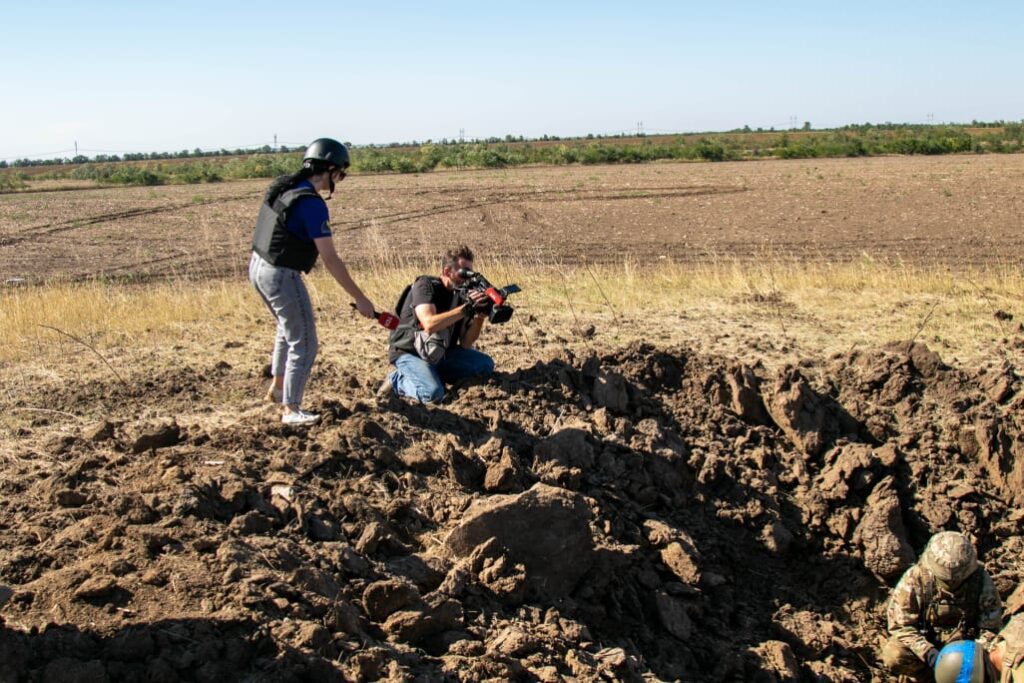
I remember my colleague from Suspilne and I were heading towards a private residential area to talk to people. Suddenly, the Russians launched a second attack. I only heard a whistle and then my colleague shouting, “Get down!” There were many cars around us. Looking back, I realize hiding near cars wasn’t the best idea, but at that moment, you can’t run far when you hear that whistle. I barely had time to cover my ears before the explosion hit. Luckily, my body quickly reacted, and we ran toward a group of people, thinking it was safer there. As we were running, I felt blood dripping down. Thankfully, there were police officers nearby who immediately provided first aid. My injuries weren’t severe—a deep scratch that bled heavily. They wrapped my head, and I ended up looking a bit like a rebel, but I was fortunate compared to my colleague Olya Zvonarova from Ukrinform, who suffered more serious injuries and spent a long time in the hospital.
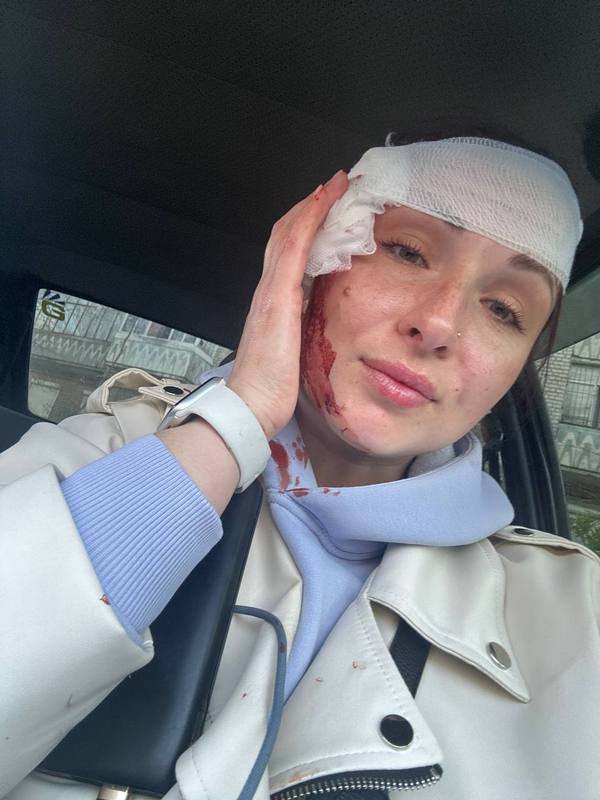
That day, all journalists were extremely lucky—there were no fatalities among us. It could have been much worse since the missile landed just a few dozen meters from where we were standing, scattering fragments everywhere. After they stitched me up at the hospital, I went live on air at 8 PM, reporting on the attack and its aftermath. I took a day off the following day to see doctors but returned to work within three days. Despite the stitches on my head, I felt well, with no headaches or lingering effects from the injury. I realize now how lucky I was to have avoided more severe consequences.
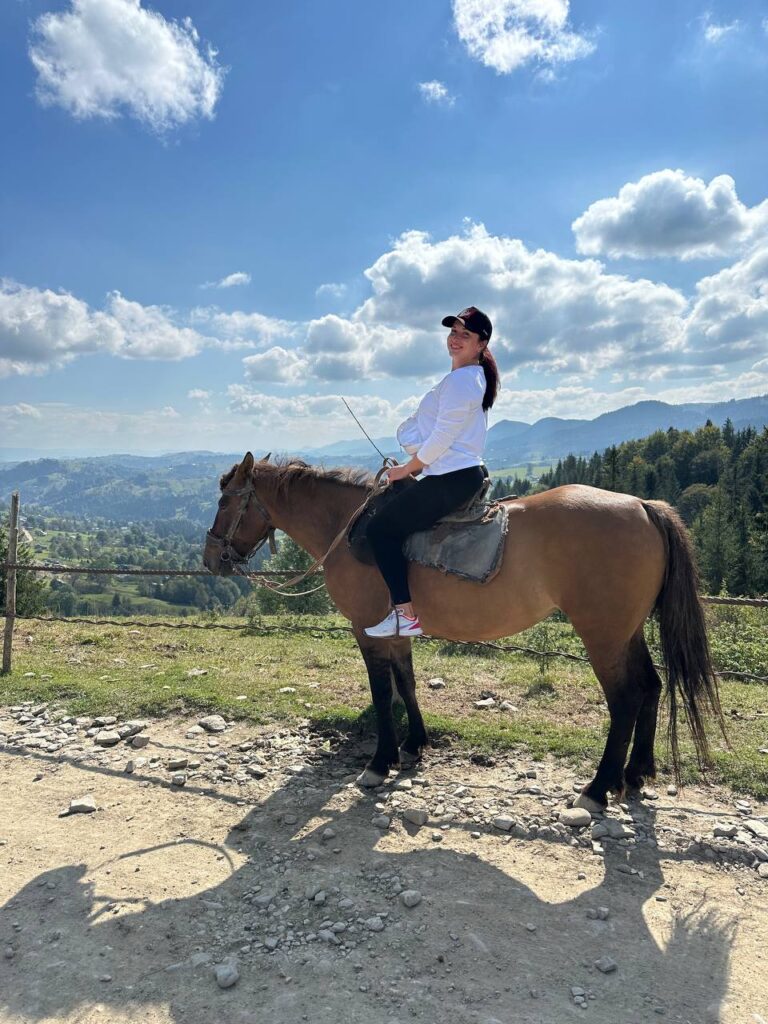
However, the psychological toll has been creeping in. At the time, I didn’t fully process what had happened. But now, when I see warnings about airstrikes on Telegram or hear air raid sirens, fear grips me in a way it never did before. I’ve started using breathing exercises and psychological techniques to manage my anxiety. It’s a struggle, but I refuse to let it hold me back or push me into depression. I remember calling my mom after the explosion to tell her I was okay, just to keep her from worrying. My brother, however, later scolded her, questioning why I’m still working as a journalist and urging me to quit. But I know I can’t leave journalism—it’s in my blood. Every week, we go out to report on the aftermath of Russian attacks, capturing the destruction and stories of loss. Journalism has changed dramatically for me over the past 10 years, but the war has made it even more intense and emotionally demanding.
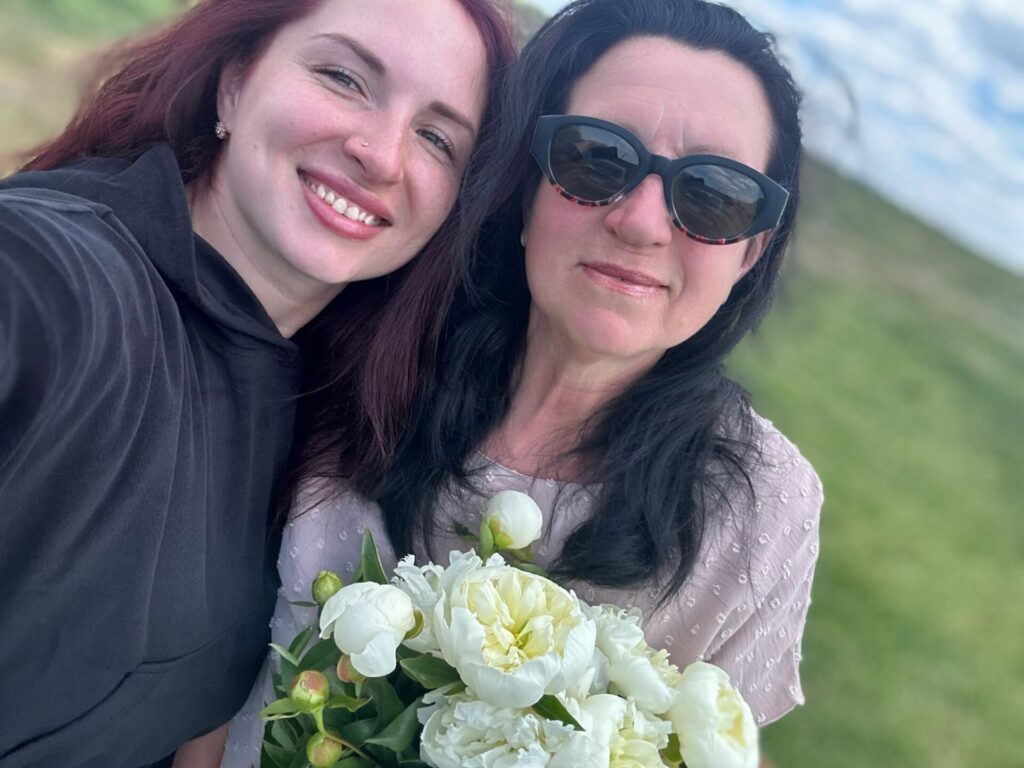
Yet, amidst the devastation, there are still uplifting stories to tell—about volunteers repairing vehicles for the front, sending treats to soldiers, or children organizing blockades to collect donations for the military. I eagerly await the day of de-occupation. I dream of traveling with my cameraman to places like Kyrylivka, reporting that Zaporizhzhia has finally been liberated. I want to tell Ukraine and the world that we are free from Russian invasion, that our region, like all occupied territories, has returned to being fully Ukrainian.
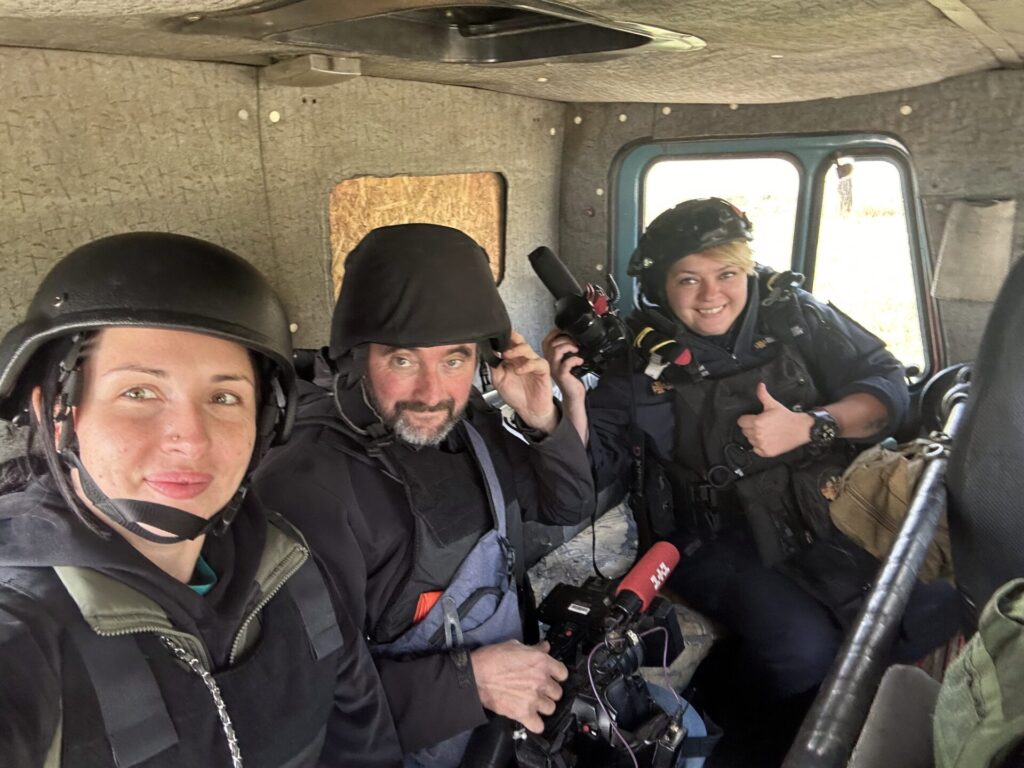
Created as part of the project “Raising awareness among target groups in Ukraine and abroad about Russian war crimes against journalists in 2024 and increasing public pressure for the release of captured journalists”, which is implemented by the National Union of Journalists of Ukraine with support of the Swedish non-profit human rights organization Civil Rights Defenders.

 THE NATIONAL UNION OF
JOURNALISTS OF UKRAINE
THE NATIONAL UNION OF
JOURNALISTS OF UKRAINE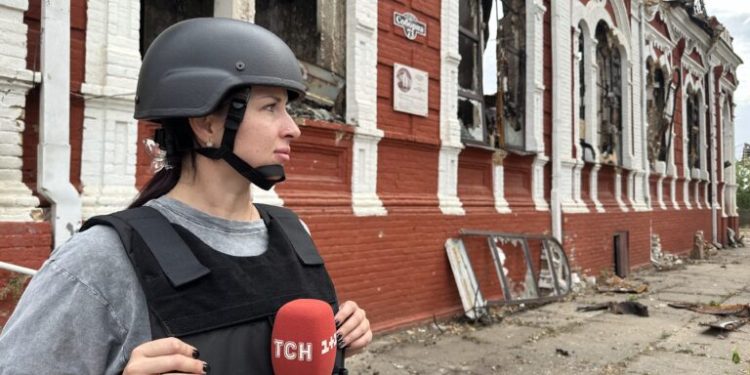
















Discussion about this post